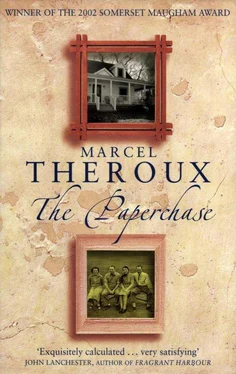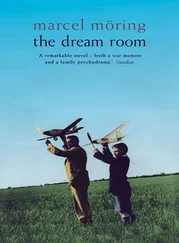*
It was another overcast day. The summer was already entering island mythology as one of the worst in fifteen or twenty years. I felt now that the Ionians were taking a grim pleasure in each fresh spell of rain and would be disappointed if the weather took a turn for the better.
Nathan stood at the aft rail of the ferry watching Ionia recede into the distance as the engines churned the sea into froth right under him. Judging by the look on his face, he didn’t get off the island very much. I told him so. ‘It looks small, doesn’t it?’ he said. I told him it was small, then felt bad for saying it.
‘Which is bigger,’ Patrick had asked once, ‘Little England or Great Britain.’ And then: ‘Great Britain or the United States?’ I got the answer wrong in both cases. The gross disparity in size between Britain and the United States had come as something of a shock to me. Since then, America has always struck me as some kind of bigger and more glamorous younger brother. I think the Portuguese must feel the same away about Brazil. The younger brother who went away and made his fortune, while the older one stayed home and looked after the family farm. One night, there’s a knock at the door and it’s young Brazil, or Yankee Doodle Dandy, in a sharp new suit, flashing his money around and full of advice about how to modernise the cowshed.
I often had the feeling, though I tried to deny it, that England was tired and second-rate, and that it was precisely its tiredness and second-rateness that fated it to be a significant part of my life. I could not identify with the superiority that Americans — even Patrick — took for granted. English people took pride in failure. ‘Good losers’, people said of the English — but that was because they had so much practice. Primacy was the American obsession. ‘We’re number one!’ And its sportsmen had developed a repertoire of gesture — high fives, clenched fists, chest bumps — as complex as Ionian sign for signalling their superiority. In England, low self-esteem was part of the national character, although it was partly concealed by our grandiose insistence on our glorious past.
I bought Nathan his boat from a shop in the Cape Cod Mall, a better-stocked version of the one on Ionia. I tried to persuade him to buy one that was more nautical, with little rowlocks and oars, but he wasn’t having any of it. I had to keep my own authoritarian tendency in check. I had a prejudice against the turtle boat. It was slightly effete. It was too young and gimmicky. It was a toy. I was being like my father, who refused to buy me the Wendy house I wanted for my eighth birthday and got me a pup tent instead. I realised that part of me wouldn’t be happy until I had cajoled Nathan into a mapping expedition in the sand dunes.
We had two hours before the next ferry crossing, so I suggested we go to the flea market in Barnstable. I don’t think Nathan even knew what it was, but he must have liked the sound of it.
It was bigger than I remembered. A faint drizzle lay heavily on the gathering; the air was thick and warm, like damp wool. The stalls were laid out in neat rows over several acres of wet grass. Nathan skipped off to examine a stall of rusty toy boats. Before he went I asked him to find out where we could buy some fleas. He gave me a pained look and rolled his eyes, and I watched him disappear into the crowd.
The vendors, who were retirees for the most part, sat in deck chairs behind their trestle tables, selling things that were not really antiques at all. A velvet reproduction armchair was sprouting springs through the ripped fabric of its seat. It wasn’t antique furniture, it was senile furniture. There were little tins of gramophone needles, glass bottles, unloved LPs. If you were lucky, you might find a copper washbasin or a pair of snowshoes, but it would take a lot of searching.
This had been one of Patrick’s favourite places. The flea market was guaranteed to get him on to the mainland. He’d sometimes show up at the house in Truro before seven in the morning to take us along with him. Or he’d appear afterwards, the boot of his car stuffed with treasures which he’d show my dad in the driveway.
I rarely saw him happier than he was then, or at the flea market itself, his eyes bright with the prospect of imminent acquisitions.
Occasionally, when we were with him, we saw a book we wanted and he’d urge us to haggle. ‘Offer him five dollars for two.’ ‘See if she’ll take fifty cents for it.’ I had seen him walk away a hundred times from things he desperately wanted for the sake of a dollar or two, or because he found the vendor churlish. It wasn’t exactly meanness. The arbitrary budgets acted as a brake on his desires. If he’d been a millionaire, there would have been something else he would have forbidden himself, as though a thousand small acquisitions could take the place of a single, inadmissible desire.
I had lost sight of Nathan. Big fat raindrops had started to wash away the remaining charm of the flea market. Eventually, I spotted him far off, wandering among the stalls. Small and serious, he moved with the peculiar invisibility of a well-behaved child.
Then, more than I ever had at Patrick’s funeral or living in his house, I felt I had lost Patrick, and with him a chunk of my own past. It was strange that only a few months earlier my reaction to the news of his death had been: Patrick who? But in answering, or trying to answer, that question, I had indirectly found a new enthusiasm for my own life. I felt it was an insight that depended on understanding who Patrick had been, how unhappy he had been, and how close I had come to turning into him. That recognition was a relief. I felt I understood that I had to live and trust people, not because people were innately trustworthy, but because the alternative was to turn into Patrick.
My father had said he lacked ambition. It was a characteristically obtuse observation. I didn’t believe it. I thought Patrick had been wounded in some way, and had surrendered to despair because he lacked the faith that anyone could help him out of it. It was how I felt about myself. Discovering that he’d saved my letters seemed to confirm our kinship.
But my reaction to his story, I realised, was a howl of incomprehension. Where did it come from, this violence? This violence that he tried so hard to legitimise.
If Patrick wasn’t who I thought he was, my optimism was founded on deceit. The empathy I felt with him was wishful thinking. And just when I should have been happy and excited about leaving, I felt as though the dark wing of some nightmare bird had come between me and the sun.
The reason I didn’t give up, then, and wash my hands of the whole business, was that I thought the truth might be more complicated. It was characteristic of me, and Patrick — and Mycroft — to know everything in advance. In my life, I have been trying to commemorate Patrick by becoming more unlike him. It’s an ongoing and never wholly successful undertaking, but a key part of it is the effort to renounce damaging certainties, to try to know a little less every day.
MRS DIAZ WAS VAST, like a tiny planet — Mercury, maybe. She was standing on a chair holding a small green watering can up to a tier of hanging baskets. The fact that she was raised up into the atmosphere of the room — a conservatory that had obviously been added to the house — made her seem even rounder and bigger. She cut short the watering when she saw me come in. After stepping down with a nimbleness that belied her size, she sank into a huge wicker chair. She was squeezed into the seat like a coconut at a coconut shy.
‘Don’t tell my husband you saw me up there,’ she said, ‘but if I have to wait for him to water them, they’ll be nothing but potpourri!’
Читать дальше












